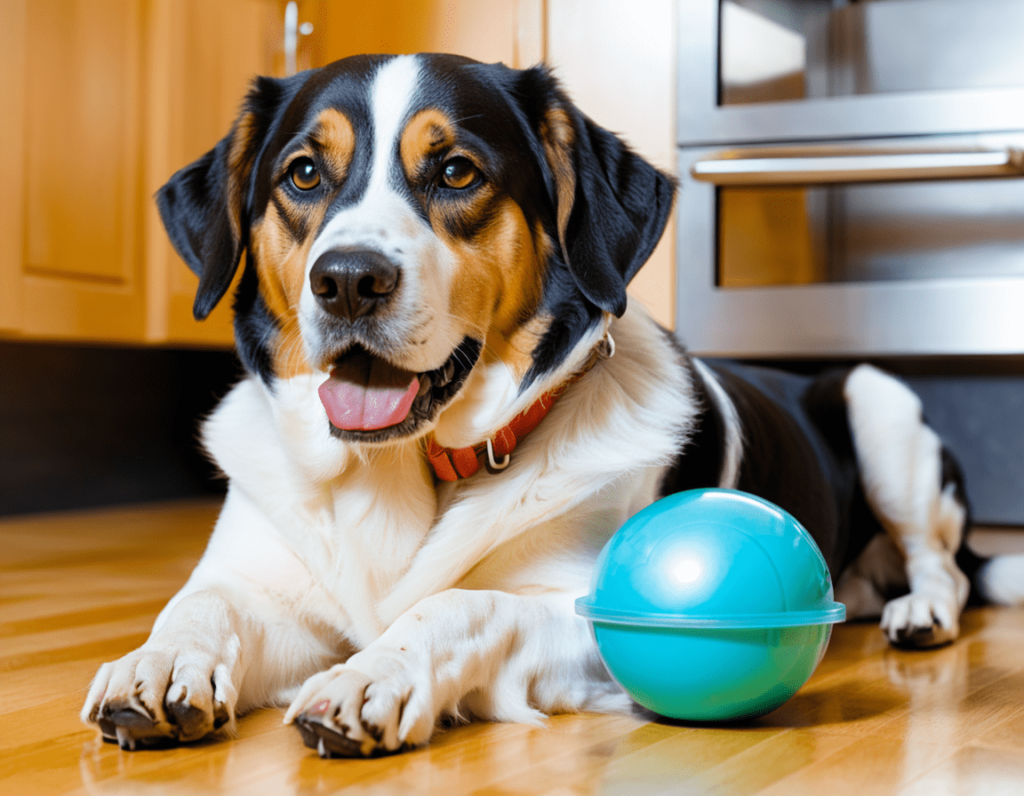Common Dog Health Issues

Owning a dog is one of life’s greatest joys—those wagging tails, sloppy kisses, and goofy antics can make any day better. But with all the love and laughter comes the responsibility of looking out for your dog’s health. Just like us, dogs can face their own set of health issues, and as their caretaker, it’s important to know the signs and take action when needed. Here’s a rundown of some common dog health issues, how to spot them, and what you can do to keep your furry friend feeling their best.
1. Skin Allergies and Itching
If your dog is scratching like they’ve just signed up for a flea-circus audition, skin allergies might be the cause. Dogs can be allergic to various things, like pollen, certain foods, or even the detergent used on their bedding.
Signs to Look Out For:
Constant scratching or licking
Red, irritated patches on their skin
Hair loss or bald spots
How to Help:
Talk to your vet about allergy testing or treatment options. Sometimes, switching up your dog’s diet or using hypoallergenic products can make a big difference. And for some relief, a quick bath in dog-safe, anti-itch shampoo might help
2. Ear Infections
Does your dog have itchy ears, or do they keep shaking their head like they’re trying to solve a mystery? Ear infections are common in dogs, especially those with floppy ears (we’re looking at you, Cocker Spaniels and Basset Hounds). Moisture, bacteria, or yeast can lead to an infection, so it’s important to keep an eye on their ears.
Signs to Look Out For:
Head shaking or scratching at the ears
Redness or discharge in the ear
Foul smell coming from the ear (sorry, but it’s true!)
How to Help:
Your vet may prescribe an ear cleaner or ear drops. Make sure to keep their ears dry and clean, especially after swimming or baths, to help prevent infections in the future.
3. Obesity
Dogs are champions of snack-begging, and who can resist those puppy eyes? But an overweight dog is at risk for several health problems, from joint pain to diabetes. Keeping your dog at a healthy weight can add years to their life and help them feel their best.
Signs to Look Out For:
Trouble feeling their ribs through a layer of fat
Panting easily or struggling with physical activity
Lack of a visible “waist” when viewed from above
How to Help:
Talk to your vet about a healthy feeding plan and make sure to get in some daily exercise. Swap those table scraps for low-calorie treats like carrots or green beans. Just remember, your dog’s begging skills may be Olympic-level, but that doesn’t mean they always need a snack!
4. Dental Disease
Ever been on the receiving end of a dog’s “morning breath”? While a little stink is normal, consistent bad breath can be a sign of dental disease. Plaque buildup can lead to gum inflammation and, eventually, tooth loss or infections.
Signs to Look Out For:
Bad breath that’s more swamp than sweet
Red or bleeding gums
Difficulty eating or pawing at their mouth
How to Help:
Regular dental check-ups and teeth cleaning (yes, dogs need this too!) can prevent serious issues. Brushing your dog’s teeth a few times a week and giving them dental treats or toys designed to reduce plaque can help keep that smile fresh.
5. Arthritis and Joint Pain
As dogs age, they may start to slow down, and it’s not just because they’re suddenly interested in naps. Arthritis is common in older dogs and larger breeds, causing stiffness, pain, and difficulty moving.
Signs to Look Out For:
Hesitation to jump, run, or climb stairs
Stiffness or limping, especially after rest
Less enthusiasm for playtime
How to Help:
Joint supplements like glucosamine and chondroitin can provide some relief, as can low-impact exercise like gentle walks or swimming. For more severe pain, talk to your vet about pain management options. And don’t forget that a comfy bed can make a big difference for achy joints.

6. Diabetes
Diabetes can affect dogs just like people, and it usually develops in middle-aged or older dogs. If your dog is suddenly drinking tonnes of water and needing extra bathroom breaks, it might be worth checking for diabetes.
Signs to Look Out For:
Excessive thirst and frequent urination
Weight loss despite a good appetite
Lethargy or a lack of energy
How to Help:
Your vet may suggest insulin therapy and a strict diet to keep their blood sugar stable. With the right care, diabetic dogs can still live long, healthy lives.
7. Parasites: Fleas, Ticks, and Worms
No one wants to deal with parasites, but unfortunately, fleas, ticks, and worms are common pests in a dog’s life. They can cause anything from mild itching to serious health problems.
Signs to Look Out For:
Flea dirt (black specks) or ticks on their skin
Scooting on the floor (a potential sign of worms)
Vomiting, diarrhea, or bloated belly (another worm-related sign)
How to Help:
Using a monthly flea and tick preventative and a regular deworming schedule can help keep these pests at bay. If you do find a tick or suspect worms, consult your vet right away for the best treatment plan.
8. Upset Stomach and Digestive Issues
If your dog has ever gotten into the trash or gobbled down something questionable, you know they’re prone to tummy troubles. Digestive issues can range from a one-time upset to chronic problems that need a vet’s attention.
Signs to Look Out For:
Vomiting or diarrhea
Lack of appetite or eating grass
Gurgling sounds from the stomach (yes, it’s a thing!)
How to Help:
If it’s a mild upset, try feeding a bland diet (boiled chicken and rice) for a day or two. But if digestive issues persist or if there are other concerning symptoms, it’s time to visit the vet.
9. Heartworm Disease
Heartworm is a serious disease spread by mosquitoes. It can damage your dog’s heart, lungs, and blood vessels and can be fatal if left untreated. Preventative care is key because treating heartworm is difficult and risky.
Signs to Look Out For:
Persistent cough
Fatigue after mild activity
Loss of appetite and weight loss
How to Help:
Your vet can prescribe a monthly heartworm preventative to keep your dog safe. If you live in a high-risk area, this is a must to prevent heartworm.
Wrapping It Up: Keep an Eye Out and Trust Your Gut
Dogs might not speak our language, but they sure have their ways of telling us when something’s off. Knowing these common health issues can help you spot symptoms early and get your pup the help they need.
So keep an eye out for any signs that your dog’s feeling under the weather, and always trust your gut. A little extra attention to their health can go a long way in keeping your pup happy, healthy, and ready for all the tail-wagging adventures ahead! 🐾

Common Dog Health Issues FAQs:
Here are some frequently asked questions on dog health that every dog owner should know!
1: How often should I take my dog to the vet for a check-up?
Answer: Ideally, once a year for adult dogs and twice a year for senior dogs. Regular check-ups help catch any potential health issues early on. Puppies may need more frequent visits, especially for vaccinations and growth monitoring.
2: What are some general signs that my dog might be sick?
Answer: Watch for changes in appetite, energy levels, bathroom habits, or behavior. Other signs include vomiting, diarrhoea, coughing, or unusual lumps and bumps. If something seems off, it’s better to check with your vet—dogs are champs at hiding symptoms!
3: How can I help prevent common health issues in my dog?
Answer: The best prevention is regular vet visits, a balanced diet, exercise, and proper grooming. Use flea and tick preventatives, keep their vaccinations up to date, and provide dental care. Remember, a healthy lifestyle is key!
4: My dog is always itching—is it fleas?
Answer: Fleas are one possible cause, but itching could also be due to allergies, dry skin, or even an infection. A quick vet visit can help determine the cause and get your dog some much-needed relief.
5: Can I give my dog human medicine if they’re in pain?
Answer: No! Many human medications can be toxic to dogs. Always consult your vet before giving your dog any medication, even over-the-counter ones.
6: Why does my dog eat grass?
Answer: Some dogs eat grass when they have an upset stomach, while others do it simply out of boredom. A little nibble here and there is usually okay, but if it’s frequent, it could signal a digestive issue.
Final Thoughts: Loving Care for a Healthy Dog
Taking care of your dog’s health might feel like a big responsibility, but it’s part of the amazing bond you share with them. By keeping an eye on their health, giving them a balanced diet, and going for regular vet check-ups, you’re setting your pup up for a long, happy life.
And remember: whether they’re chasing their tail, scratching a mysterious itch, or just giving you that adorable head tilt, they count on you for their care. So go ahead, be their health hero—and enjoy all the tail wags and happy barks that come along with it! 🐕🐾


